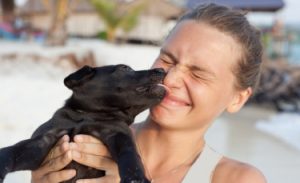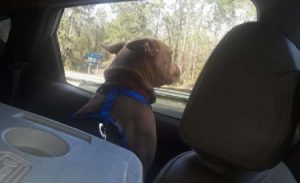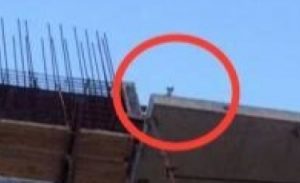When our 4-legged friends aren’t doing well, they try to tell us in their own way. In other words, by their postures, gestures and intonations.
Dogs and cats may not be good at speaking, but they can make themselves understood through their body language and voice signals. It is therefore important to learn to decipher them, especially when they seek to express discomfort or unease.
Our pets use their own signals to try and let us know they are feeling pain, fear, or worry.
Here are 14 of these signs and their meanings …

When our companions give us that whale-like look, with the whites of their eyes clearly visible and dejected, they may experience anxiety, distress or fear. It is then necessary to identify the situation which is embarrassing him and to put an end to it. It could be the presence of another animal with which he does not get along, for example.
2. They have their ears folded back
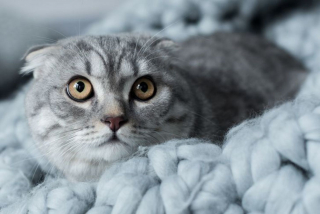
Folded ears are often a manifestation of fear and are part of a defensive posture. In some situations, this attitude can lead to conflict if the animal has no other choice, such as flight.
3. They have frequent cleaning accidents
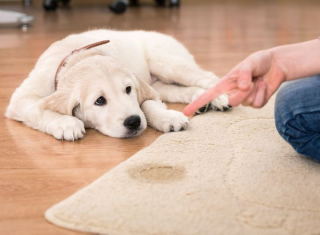
A cleaning accident can happen and this is not dramatic, especially in a young dog who has not yet fully learned this reflex to defecate outside or a young cat who has not finished learning the litter box. However, the phenomenon becomes problematic if it is repetitive. The possible causes are various: stress (due to a change of environment, the arrival of a new member in the family …), urinary disorder, unsuitable litter …
4. They tilt their heads too often
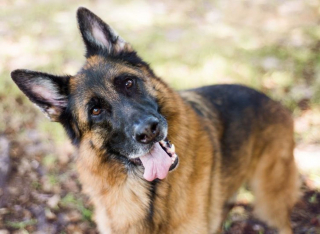
This way our pets, especially dogs, of tilting their heads to the sides is particularly touching. They do this mostly when you are talking to them or when they see or hear a noise that seems strange to them. However, if they do it too often, there is cause for concern. It may be the manifestation of vestibular syndrome or an ear infection.
5. They yawn repeatedly
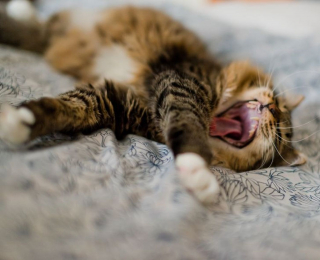
Dogs and cats don’t just yawn when they’re tired or sleepy. They also do it when something bothers them. Yawning is also a sign of appeasement to avoid confrontation.
6. A change in their sleeping habits

Following a big change (moving, new diet …), the animal’s sleep can be disturbed. He sleeps less or more than usual, but it usually doesn’t last long and he eventually returns to his normal cycle. If not, it could be that the cat or dog is suffering from an illness (only the vet can check this) or simply needs to be readjusted.
7. They start following us everywhere

An animal that is not usually the glue-pot type and suddenly becomes so, is probably concerned about something. If it’s a female, she may be pregnant. This also happens when he gets older.
8. They frequently lick their lips
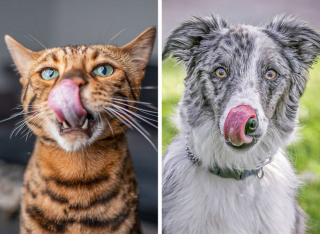
Nausea, dehydration and stress are the main causes of excessive lip licking in our pets. It is therefore necessary, depending on the case, to ensure that they have sufficient water, that they are safe from the anxiety-provoking situation or to take them to the veterinarian if it is a question of a sickness.
9. They destroy objects
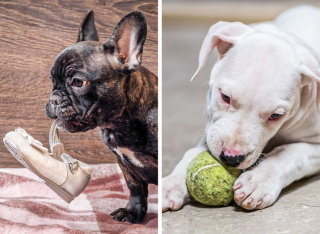
A dog or cat that often nibbles on objects may suffer from separation anxiety or boredom. It is therefore important to ensure that they have enough opportunities to be stimulated. This involves shared activities (no more walks, games …), toys and exercises helping the animal to get used to the absence of its master.
10. They eat soil or plants

For puppies and kittens, it’s natural to taste everything within their reach, including soil and plants. It’s part of their desire to explore and discover. For an adult animal, on the other hand, it can be the expression of a deficiency, boredom or even stress.
11. They no longer obey orders

12. They hide
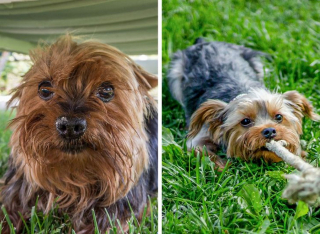
It is normal for a dog or cat who is afraid of something to want to hide. However, if he tries to hide from his master and if this is accompanied by other symptoms (depression, vomiting …), he must be seen by a veterinarian because this most likely indicates an illness.
Read also: The moving story of a blind dog beaten by its former owner, discovering the beach for the first time
13. They bark, meow or howl more often than usual
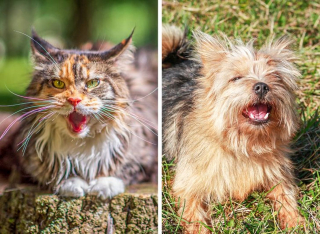
Prolonged meowing often occurs during periods of heat in cats. They can also be the expression of discomfort or pain. Excessive barking is usually emitted by dogs who feel lonely, sense danger, or are bored.
14. They chase their tail
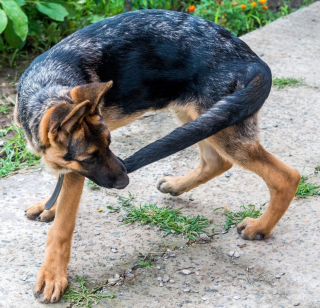
Watching a dog circle around itself trying to catch its own tail is often fun. In some cases, this can hide discomfort, especially stress.


